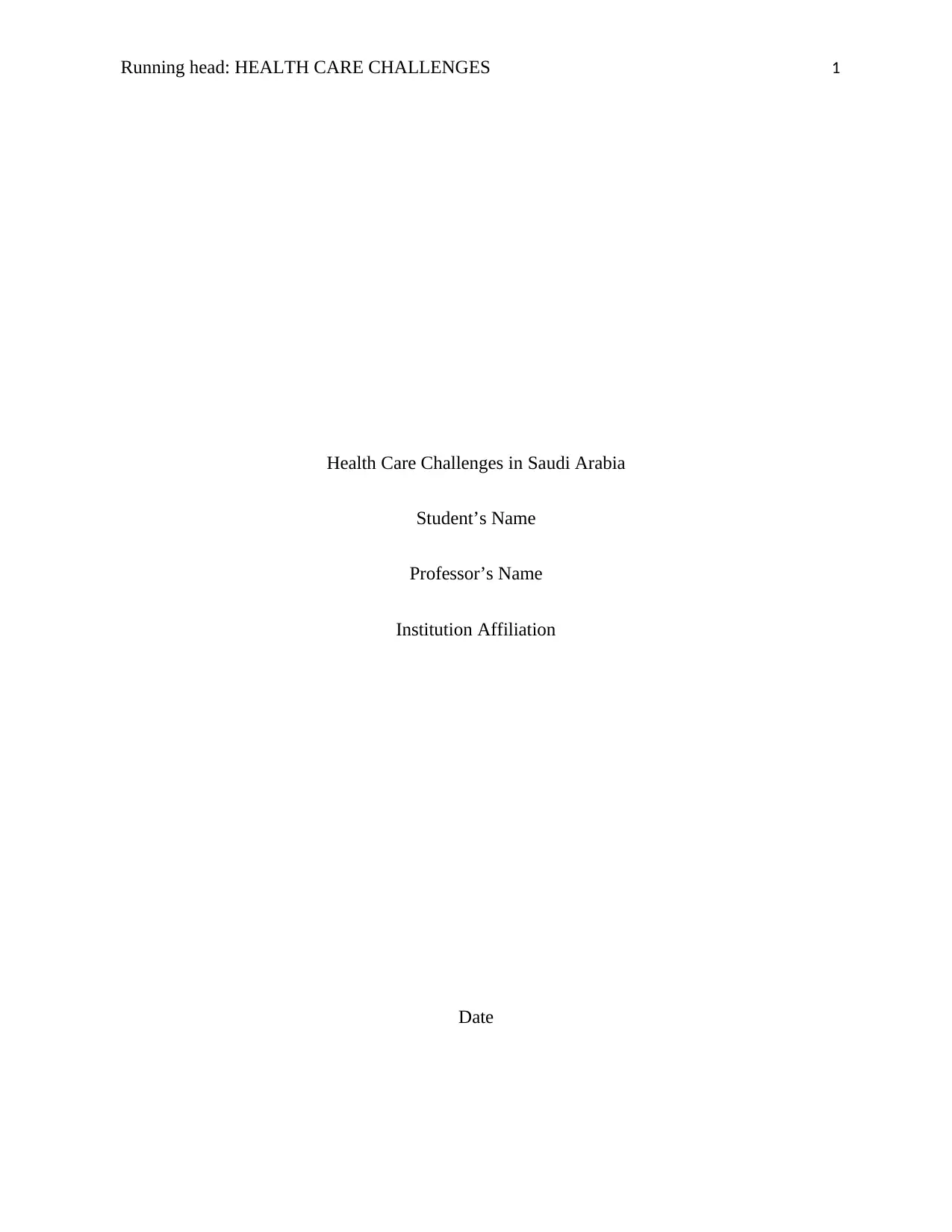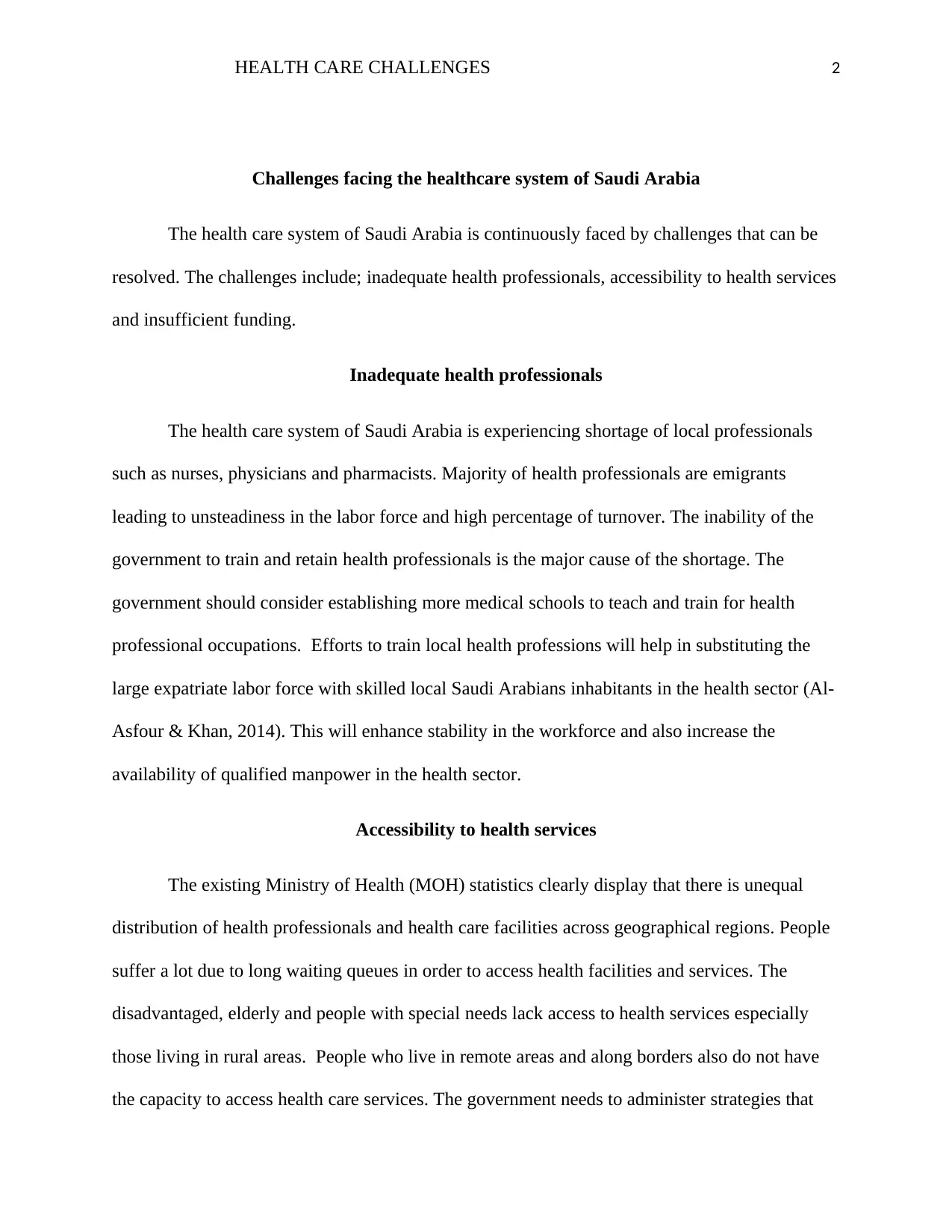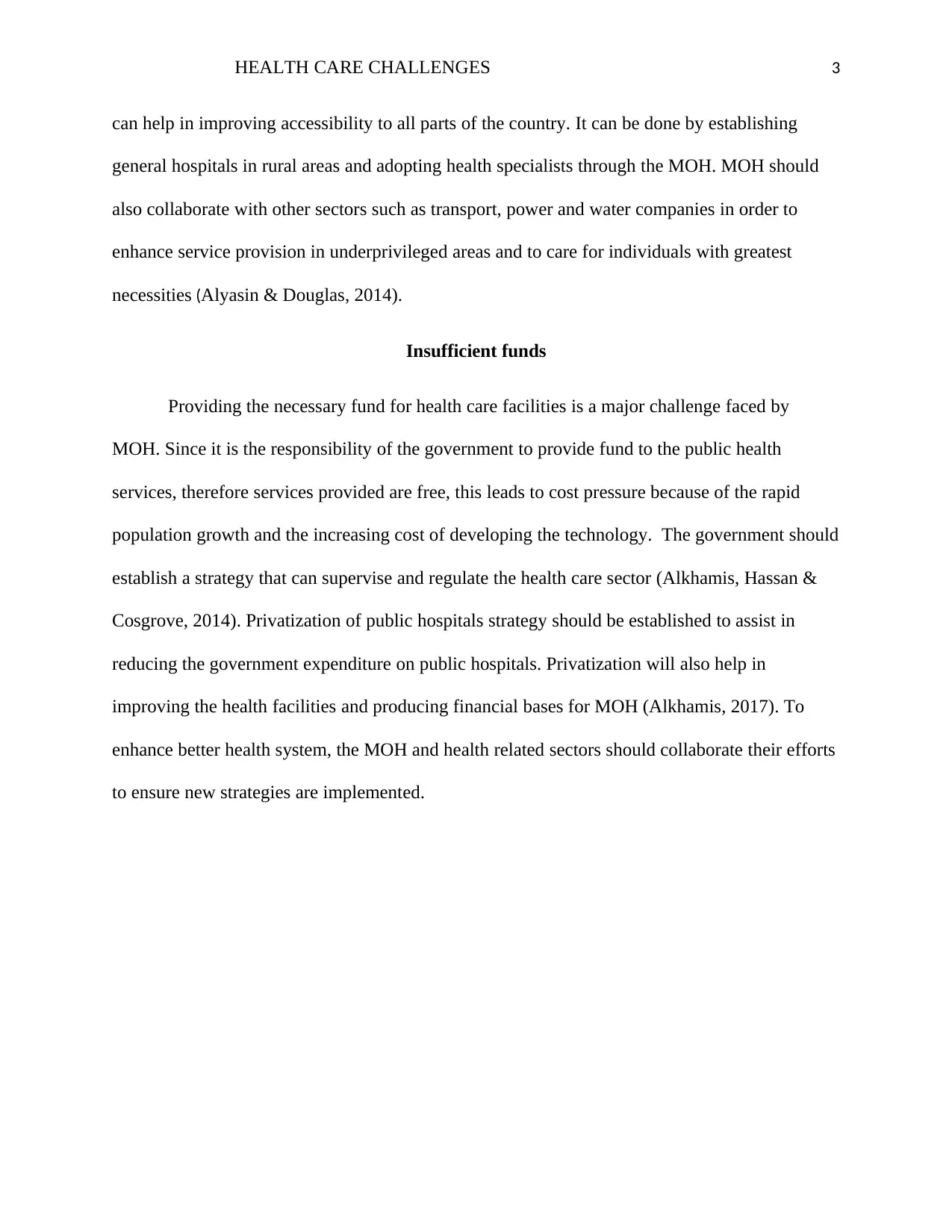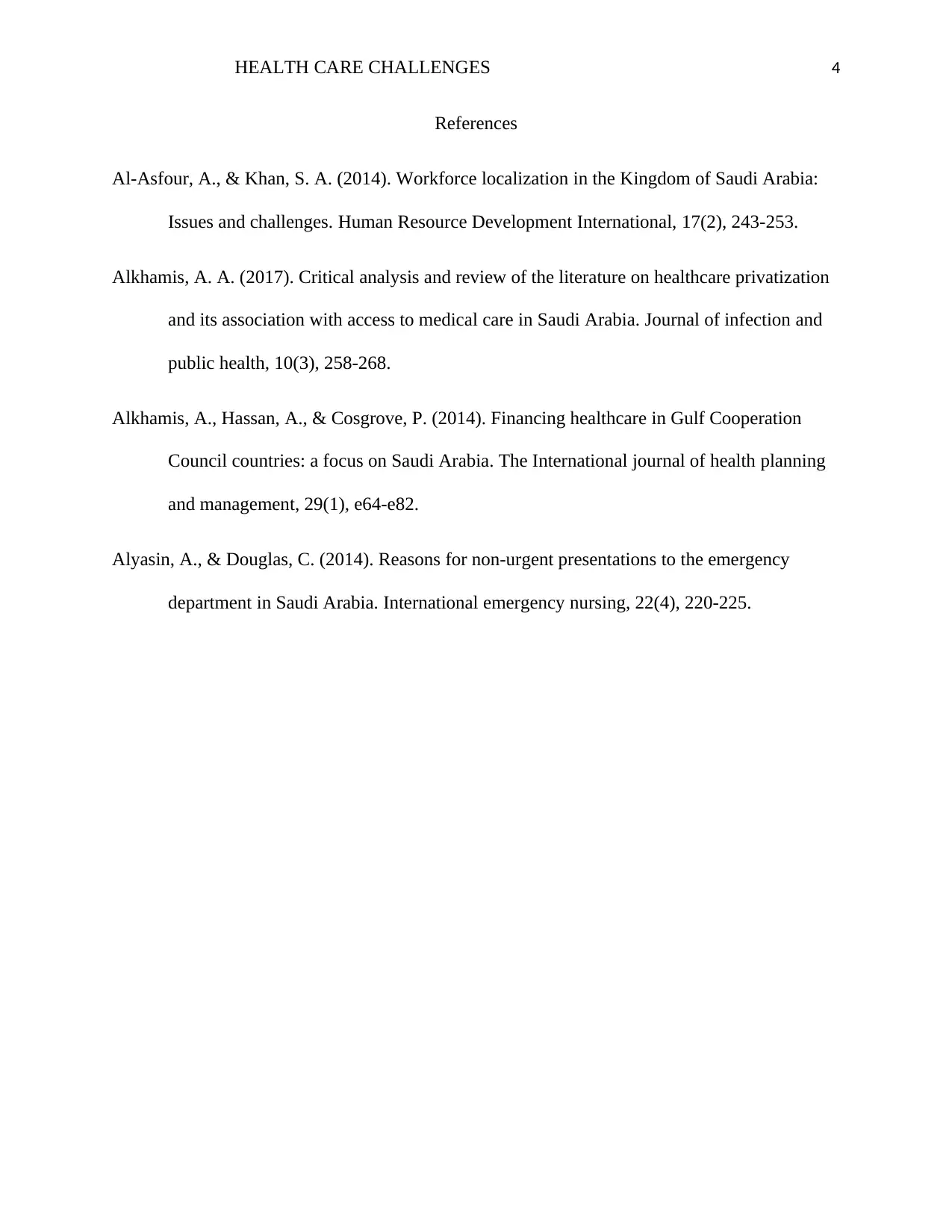Critical Analysis: Health Care Challenges in Saudi Arabia
VerifiedAdded on 2023/06/07
|4
|694
|152
Report
AI Summary
This report identifies and analyzes the key challenges confronting the healthcare system of Saudi Arabia. These challenges include a shortage of local health professionals such as nurses, physicians, and pharmacists, leading to reliance on expatriate labor and workforce instability. Unequal distribution of healthcare facilities and professionals across geographical regions results in accessibility issues, particularly for disadvantaged populations and those in rural areas. Insufficient funding, exacerbated by free public healthcare services and rapid population growth, creates cost pressures. The report suggests strategies such as establishing more medical schools, improving resource allocation, collaborating with other sectors, and exploring privatization to enhance the Saudi Arabian healthcare system. Collaboration between the Ministry of Health and related sectors is crucial for implementing new strategies and improving overall healthcare delivery.
1 out of 4











![[object Object]](/_next/static/media/star-bottom.7253800d.svg)